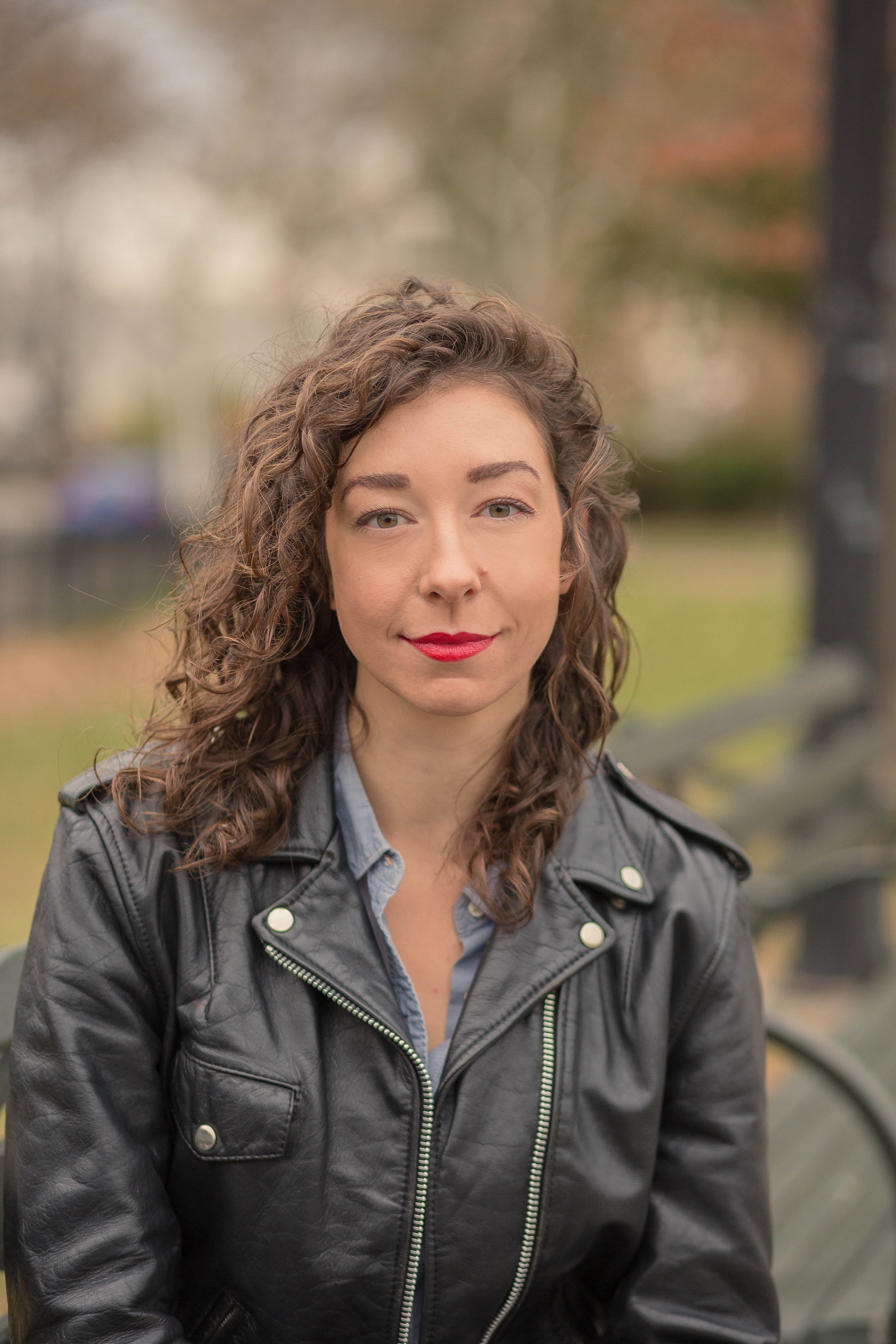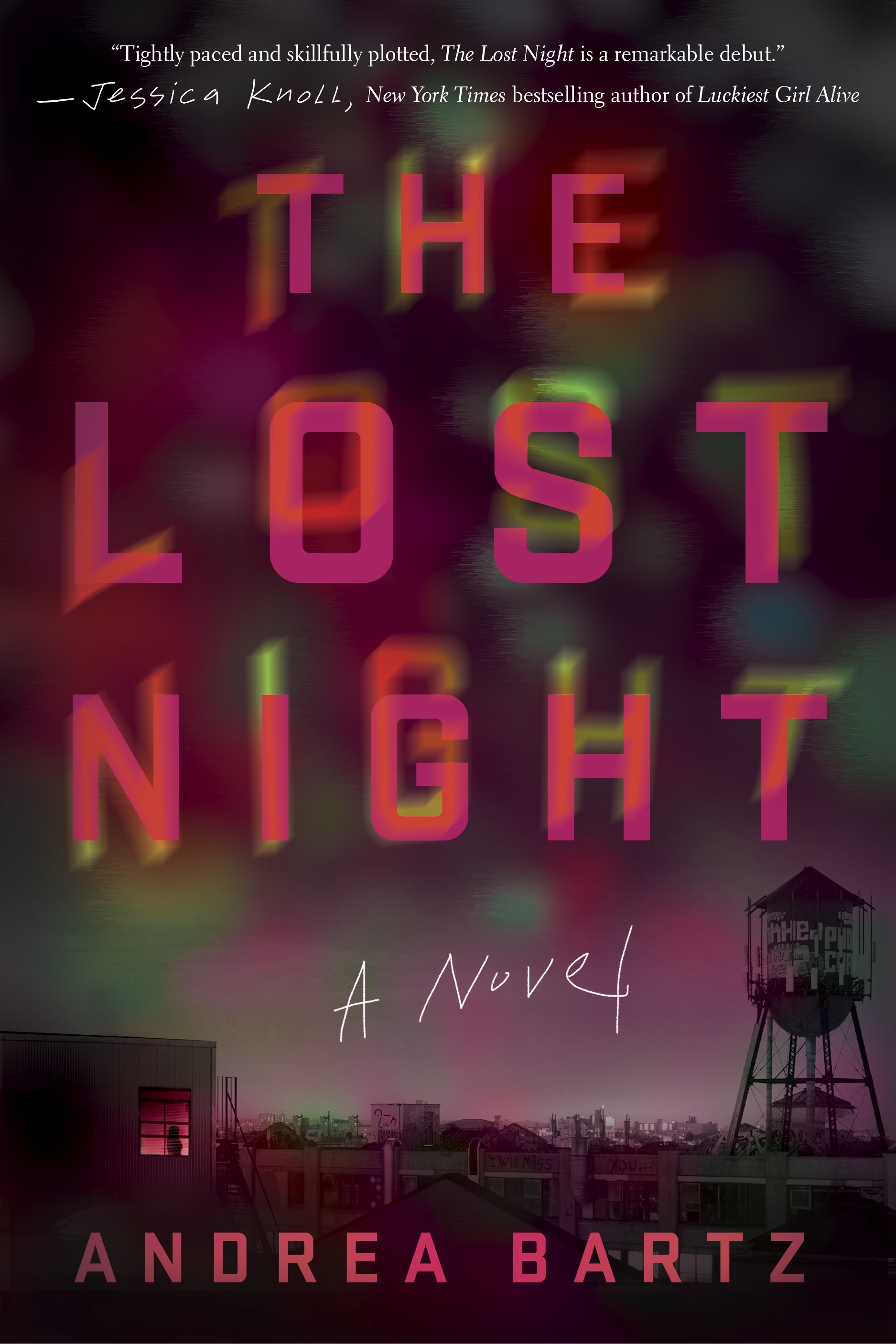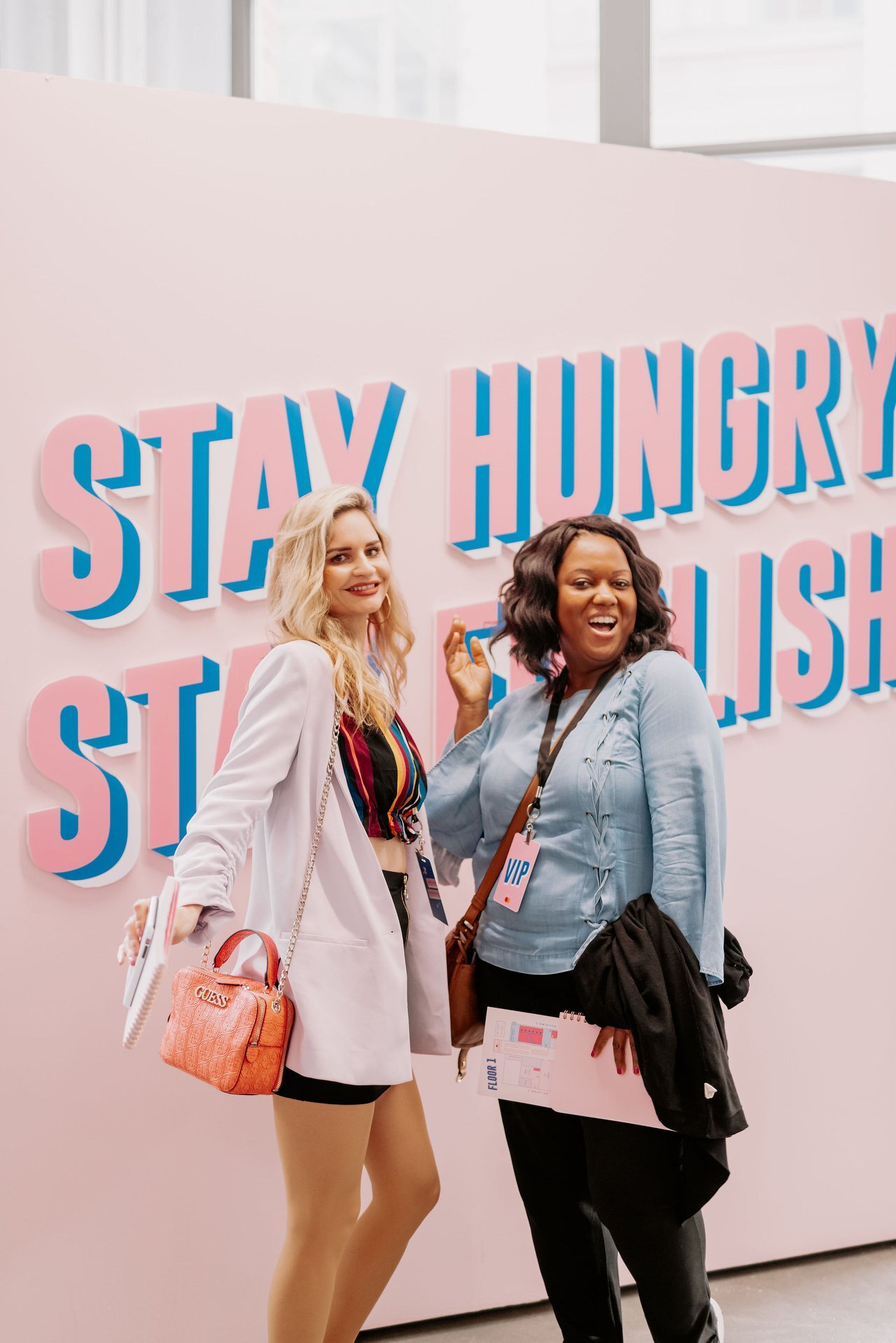Andrea Bartz is a master with words. Down-to-earth and candid, she’s not afraid to share her journey from initial idea to being published. Below, Andrea shares what it’s like to be a writer, how to combat the loneliness of writing, the best advice she’s been given, and getting a deal with Mila Kunis.
What does an average day in your life look like when you’re working on a novel?
I try to keep to a schedule, but I’m flexible if workday fun calls (like if I hear about a great museum exhibit and need to ditch my computer and head there on a random Tuesday—that’s the beauty of not having an office job!). Most days, I spend the morning answering emails and working on all the little pieces of being a writer that aren’t writing: updating social media, getting up to date on publishing news, reviewing other books, writing essays and giving interviews, etc. I take a break to work out (I’m a diehard ClassPass fan), and then I spend the afternoon writing or revising my novel. I have daily goals and once I’ve hit them (whether it takes an hour or five), I call it a night and usually see friends. I spend a lot of time in my tiny studio apartment, but I’m most productive when I’m set up with my ergonomic keyboard and dual monitors!
How do you manage your time while writing? Does your publisher give you deadlines, or do you create your own?
My publisher gives me deadlines, but they feel a little abstract: This many months from now, we’ll need a 90,000-word manuscript. So I create my own mini-deadlines to stay on track. I use pacemaker.press to figure out how much I need to accomplish every day and to record my progress, whether I’m drafting (1,200 words/day) or revising (currently about 24 pages/day). The important thing is to build in a cushion at the end and to recalculate whenever I fall behind—otherwise I get overwhelmed if I miss a day.
What was your experience like finding a publisher for this book?
I worked on The Lost Night for about two years before I thought it was in decent shape. In late 2016, I queried several dozen agents whom I thought would like it; I was in the slush pile, sending my query letter and sample chapter like anybody else. Three agents offered representation, and I signed with the brilliant Alexandra Machinist (who reps Tomi Adeyemi, Kevin Kwan, and many other stunners) late that year.
Alexandra took the book out on submission in February, and two editors were interested but not completely sold. They gave me their notes and said they’d be happy to look at a revision. I went to town reworking the novel yet again, which was scary and difficult: I knew that, even after all this work, both editors could pass on the revised draft. But their notes made it much stronger, and thankfully, my editor at Crown (the wonderful Hilary Rubin Teeman, who recently edited the number-one NYT bestseller One Day in December) made an offer in summer 2016. I’m also working with her on my second novel, The Herd, which will come out in 2020.
How do you deal with writer’s block?
I’m always dealing with writer’s block! I truly never feel like sitting down and writing, even though I love what I do. For me, it’s all about mind games: I’m a big fan of the Pomodoro Method, where you set a timer for 25 minutes and do nothing but write until you hear the beep—you don’t check your phone, you don’t unload the dishwasher, you don’t look at Twitter, you just write. Even if what you write is god-awful, or even if it means opening up a second document and screaming into it (“I DON’T WANT TO BE WRITING TODAY I DON’T KNOW HOW TO END THIS SCENE I HATE THIS DON’T MAKE ME”)—that still counts as writing! Then you set another timer for a 5- or 10-minute break, and after it, you dive into the next productive period. I can accomplish more in two or three Pomodoro “writing sprints” than an entire afternoon of dicking around on my computer. I have to physically tuck my phone out of sight to stay focused, so I use the charmingly basic tomato-timer.com to keep track.
“Be a voracious reader of fiction that appeals to you (especially works by female authors and people of color!)”
When did you know you wanted to be a writer? What was your journey to writing like?
I’ve always wanted to be a writer—when I was little, I filled notebooks with poems and plays and short stories, and in college I studied journalism, which seemed like a “respectable” way to make a living with my writing. I interned at several magazines (in fact, I met Jaclyn Johnson when we were interns together at Conde Nast!) and then worked my way up the masthead as a magazine editor. I primarily worked at women’s magazines (including Self, Glamour, Natural Health, and Martha Stewart), and I didn’t mind that I was doing more editing than writing. I started writing The Lost Night during my last full-time job, five years ago, and the stars sort of aligned when the magazine I was working at folded: I became a freelance writer, and I worked hard to finish and sell my manuscript. I still do some freelance writing, but I love being able to focus on fiction now.
What advice do you have for aspiring female writers?
In terms of craft and outlining, I’m always recommending two books: Jessica Brody’s Save the Cat Writes a Novel, which will help you plot out the emotional “beats” of your story, and John Truby’s The Anatomy of Story, which gives specific exercises for developing rich characters, building your world, and creating an emotionally compelling story. Read those, and be a voracious reader of fiction that appeals to you (especially works by female authors and people of color!)—that’s all you need. You don’t need an MFA, unless that’s the kind of community you’re looking for.
So many people tell me, “I would love to write a novel someday!” or “I wish I could write a novel!” I’m always reminding them that the only way to write a novel is to...write a novel! It seems daunting, but if you write 1,000 words a day, you could have a full-length manuscript in under three months. The important thing is just to sit down and start writing. Again, whatever mind games help you get there are great: Some people like taking a class because it forces them to write a certain number of pages a week. Others love having a writing group (or just finding a crit partner) because it forces them to write pages for swapping. There's no magic dust, but every single page you write makes you a stronger writer.
How do you combat the loneliness often felt by writers when they’re working?
This is a great question, and it’s something I struggle with; I’m an extrovert and I loved the collaborative, super-social environment of a magazine office, so I can go a little stir-crazy when I’m alone for too long. Exercise is so important for mental health in general, and workout classes in particular really boost my mood and energy level (in a way that using the Elliptical in my building’s gym can’t). I’m forced to go outside, see the sun, and be around other people. That’s huge, when you work from home!
About once a week, I’ll meet a writer friend for a work date, which is usually a catch-up lunch followed by a few hours of working. I know I won’t be quite as productive during our date, so I save certain tasks for cafe days, like updating my website or sending invoices. I try to schedule dinners or drinks several nights a week, so I have something to look forward to when I’m done writing. And finally, as I mentioned, every once in a while I just say screw it and head to a museum or movie or park or botanical garden. What’s the point of being self-employed if you never give yourself a break?
“The only way to write a novel is to...write a novel!”
For this novel specifically, how did the idea come about? Which came first: the story, the characters, the ending?
The characters and story hit me all at once. To give a little context, The Lost Night is a thriller about a woman unraveling the dark truth surrounding her best friend’s apparent suicide in a Brooklyn artists’ loft ten years earlier. It explores that moment of feeling young and free and invincible when you’re out on your own for the first time—and what happens when that all comes crashing down.
I had the idea when I was thinking back on my own “invincible” twenties, when the nerve center of my social life was this labyrinthine factory-turned-hipster-dorm in Brooklyn’s gritty Bushwick neighborhood. It was pretty wild: You could wander in on any Friday night and come upon a concert, a play, a poetry reading, an open mic, an EDM dance party, and who knows what else. I thought: What if, after one of those hard-partying Friday nights when a million mini-adventures went down, there was a dead body?
As for the ending: The whole time I was writing, I had no idea how it was going to end! It cracks me up when readers say they spotted this or that twist from a mile away, because I swear—I didn’t see it myself until it poured out of my fingers and onto the page.
What’s the best piece of advice you’ve been given?
I almost didn’t write The Lost Night—I was so scared people were going to dismiss it because it centers around a much-maligned “hipster” subculture. (Remember how much everyone hated hipsters in, like, 2014?) My friend Leah Konen, who’s also a fiction writer, gave me the best advice in the world: “Go all in on a shitty first draft. Take off your editor hat. Take off your what-if-people-make-fun-of-me-for-writing-about-hipsters hat. Just write!” No one had given me permission to write poorly before. So freeing!
What are you most excited for in 2019?
I’m of course incredibly excited for The Lost Night’s publication on February 26! Beyond that, Cartel Entertainment recently signed on to adapt the book as a limited series, with Mila Kunis on board as a producer. Things move slowly in Hollywood, I hear, but I’m incredibly excited to see my novel brought to life on the screen.
Keep reading for a sneak peek of The Lost Night!
Remember being 23? For many of us, that time felt loopy and free, brimming with possibility. We were out on our own for the first time, and friendships felt operatic, romances felt epic, and every weekend crackled with possibility.
That was certainly true for Lindsay Bach, the narrator of my psychological thriller, THE LOST NIGHT (Crown, on-sale 2/26). She was 23 in 2009, and her artsy young group of friends all lived in Calhoun Lofts, a sprawling Brooklyn warehouse space with parties and concerts and general debauchery spinning out from every corner. Her best friend, Edie, was the group’s seductive ringleader—beautiful and mercurial, she had the city’s social scene in her thrall. After they found Edie in her loft with a suicide note on her computer and a bullet in her head, the group scattered, torn apart by shock and grief.
Ten years later, Lindsay thinks she’s moved on: She has new, adult friendships and a slick job as the head fact-checker at a glossy magazine. So she’s not quite sure what compelled her to reach out to Sarah, a friend from the Calhoun Lofts era, when Sarah moved back to NYC. This adapted excerpt is from Lindsay’s catch-up dinner with Sarah, the first time Lindsay’s seen anyone from Calhoun Lofts in a decade. The conversation quickly turns to their beautiful, fallen heroine—and what really happened that fateful night...
*****
Sarah didn’t mention Edie again until we were finishing dessert, picking at a shared flourless chocolate cake. “It’s crazy to think about how much has happened in ten years,” she announced. “I was so glad to hear you wanted to get together. I thought about reaching out a few times over the years, but I just wasn’t sure after . . . I mean, after how everything went down after Edie.”
“That’s exactly how I felt, to be honest,” I said. “I know I just sort of . . . went MIA afterward. I mean, I guess we were all just grieving in our own way. We were so young. None of us were equipped to deal with it.” She nodded and looked away, and I realized she wanted me to go on. “I always thought you had it worse than anyone, Sarah. Worse than everyone. I mean, you found her. God, I haven’t thought about this in so long.”
I’d done my crying and then I’d let Edie go, tucking the whole ordeal away so that it couldn’t taint what came before. So I was surprised by how quickly the night came back to me now that I’d called it up. Now that Sarah was sitting across from me and talking about August 21, 2009, in dark, tenebrous terms.
It had been a Friday. A band had been rattling the windows in an apartment two floors up from Edie’s place, and a bunch of us were standing around at the concert, drunk or pretending to be. The guitars and bass were so loud, I could feel the vibrations in my collarbone. I remember registering with a flapping concern that I was too drunk, then scurrying out to the street, where a random girl had helped me hail a taxi home. Edie hadn’t been at the con- cert with us; Edie had been home alone, two floors down, crafting a brief suicide note and then pulling out the gun. Her time of death, we later learned, was while we were watching the band, their meandering chords cloaking the single gunshot. The rest I knew from my friends’ accounts, repeated so many times that I could see it: midnight, pitch black, Sarah hobbles into the apartment and flicks on the overhead lights, trying not to make too much noise in case Edie’s already asleep. Her screams had rattled the whole building, shrill and sharp and with that beelike whine hovering descant just above her cries.
“I know, it was awful.” She listed forward and I suddenly realized Sarah was drunk.
“You moved back home, right?”
“Yeah, my parents were pretty worried about me. I mean, I was acting like a lunatic, going all conspiracy theorist.”
“What do you mean?”
A sheepish laugh. “You remember. I guess I just didn’t want to believe my best friend could do that. She trusted me more than anyone, and I didn’t like feeling like I’d failed her.”
I sat up straighter. Her best friend? Who was she kidding? “I don’t know what you’re talking about,” I said.
“You don’t remember?” she continued. “I was running around insisting that Edie hadn’t actually killed herself, that it must have been an accident or foul play or something. I know, it’s ridiculous.”
“Oh, wow, I didn’t realize that.” Sarah’s flair for melodrama resurfaced in my memory like something emerging from the mist. “What made you think it wasn’t a suicide?”
“Oh my god, it was all stupid little things, in retrospect. There was the fact that I found her in her underwear—she was always so perfectly put-together, so that seemed weird.”
Right, but it was circumstantial. When we’d talked it out in those first shaken weeks, it had also seemed plausible that she wouldn’t have wanted to ruin any of the beautiful pieces in her closet; Edie had treated them like precious artifacts.
“And the gun stuff didn’t make sense to me: She was left-handed, but the gun was in her right hand, and the wound was on the right side of her face. Until a forensic expert explained to me that if she used two hands, she could’ve wound up slightly off- center and just, like, crumpled to either side.”
Jesus. She’d talked to a forensic expert? I watched as she slurped the last of her fourth martini.
“But I learned enough about criminology to figure out that there are a few loose ends in any investigation. Because that’s how life is.”
“. . . Unraveling,” I supplied.
She smiled. “But yeah, my parents found me an awesome therapist, and she helped me face the facts. I guess we all turned out okay.”
“We did. And you shouldn’t feel bad about dealing with it however you needed to deal with it. We were all so immature and maybe didn’t know how to . . . ask for help.”
“You mean like Edie.”
I’d been thinking of myself, but sure, Edie, too. What with the debt and the depression and the suicide note on her laptop. The gun pressed against her temple.
“That was some heavy shit,” I said.
She poked at her cocktail napkin. “It’s still hard for me to believe sometimes. Like, we were at the top of our game. We were having the time of our lives.”
“I know what you mean,” I said. “Everyone glorifies their twenties, I guess, but for me that period was . . . It meant a lot.” I swallowed hard. “And then it ended. It’s nuts. Literally, we were dancing around to some stupid band just a few floors up while Edie was . . .”
Sarah narrowed her eyes. “Well, you weren’t.”
“What?”
“You weren’t at the concert.”
Adapted from THE LOST NIGHT: A Novel Copyright © 2019 by Andrea Bartz. To be published by Crown Publishers, an imprint of Penguin Random House, on February 26, 2019.










